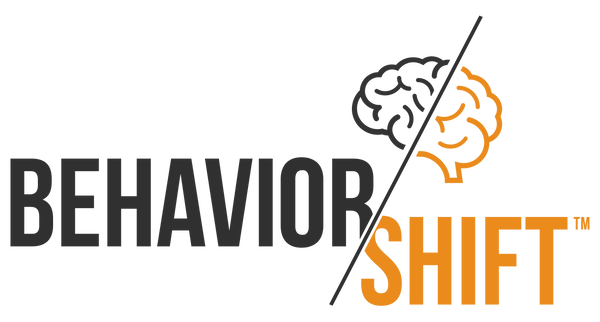As we enter into yet another New Year, many of us set ambitious goals, hoping to improve our health, career, relationships, or overall well-being. However, despite our best intentions, research shows that most New Year’s resolutions tend to fade away within weeks or months. Why does this happen? The answer often lies in how we approach goal setting.
Behavioral science can offer valuable insights into why traditional goal-setting methods fail and how we can set more meaningful, sustainable goals that align with our intrinsic motivation and personal values. As you prepare for another year, understanding these insights when setting goals can help you align your goals to your values and increase your goal commitment to keep you on track throughout the year.
Use Your Values as a Guide
When setting goals, it’s essential to consider your values—those deeply-held beliefs that guide your actions and decisions. Behavioral science research shows that when our goals are aligned with our values, we’re more likely to feel motivated and fulfilled in the pursuit of those goals helping us stay on track to succeed.
For example, if one of your core values is "impact” you might focus on goals that involve giving back such as volunteering, mentoring, or getting involved in causes you care about. If one of your values is "connection," you might set goals related to spending more time with loved ones or engaging in community activities.
It’s important to take the time to consider your values when setting goals to ensure your goals reflect what matters most to you. This helps you stay committed and motivated throughout the year. This is exactly why we’ve designed our Goal/Shift Module to include a “Understand Your True Self” page as the first step in the goal setting process followed by a “Define Your Values and Priorities” step that digs deeper and helps align your values with your goals.
Focus on Effort, Not Just the Outcome
Behavioral science research emphasizes the importance of focusing on process or effort goals, not just outcome goals. While outcome goals (e.g., "lose 10 pounds" or "get promoted") are important, they can be overwhelming and demotivating, especially if progress is slow or difficult to measure. Instead, focusing on effort goals—specific, actionable steps that contribute to the desired outcome—can lead to more consistent progress and greater satisfaction.
For example, instead of setting the outcome goal of "becoming a better writer," set a process goal like "write for 30 minutes every day" or "complete one writing prompt per week." This approach breaks down a larger goal into manageable steps, allowing you to celebrate small wins along the way. It also encourages the development of sustainable habits that lead to long-term success.
Leverage the Power of Small Habits
Behavioral science also highlights the power of small habits. The theory of habit formation suggests that tiny actions, when repeated consistently over time, can lead to significant changes. When we repeatedly perform a behavior or action in a given situation, an association between the two develops and can become strong enough that the situation itself can trigger the associated behavior without conscious thought. This is particularly important when setting New Year’s goals, as it’s easy to become overwhelmed by large, ambitious objectives.
Start by breaking down your goals into smaller, more manageable habits. For instance, if your goal is to read more books in the year, instead of committing to read 30 books, aim to read just 10 pages every day. This small habit, when practiced consistently, can build momentum, making it easier to incorporate into your daily routine. Over time, these small actions compound into meaningful progress, and you’ll be amazed at how much you can achieve by making these tiny, incremental shifts in routine.
Accountability and Tracking Progress
Research shows that tracking progress and creating accountability can be powerful motivators. When you can see your progress over time, it boosts your sense of achievement and encourages you to keep going. Similarly, having someone hold you accountable can help you stay focused and committed to your goals.
Our Daily/Shift Journals are designed to support you in this process. By conducting weekly check-ins and goal assessments, you can track and reflect on your progress each week, providing a deeper understanding of what is working well and what may need to change to keep you on track.
Shift Your Behavior, Change Your Life
At Behavior Shift, we design our guided goal journals and tools to help you implement key behavioral science principles in your life. Our products aren’t just about writing down your resolutions—they’re about using proven strategies to create a framework that supports long-term success.
Whether you’re setting professional goals, personal development targets, or health-related objectives this year, our products encourage you to reflect on your values, break down larger goals into smaller, actionable steps, and track your progress over time. With regular reflection prompts and built-in accountability features, our tools help you stay aligned with your intrinsic motivations and make course corrections when necessary.
This New Year, set yourself up for success by leveraging the power of behavioral science to set goals that are not only achievable but also deeply meaningful. With the right tools and mindset, you’ll be empowered to create lasting change in your life.
Ready to start your journey toward meaningful change? Download your copy of our Goal/Shift Module, purchase a Brain/Shift Journal, or start out the year with our newest product, The Daily/Shift Journal to keep on track throughout the entire year and make this New Year your most fulfilling yet!

